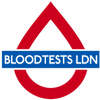Scientists find night owls may be more prone to heart disease and diabetes
Are you a night owl? Scientists looking at the connection between sleeping habits and metabolism have found that those who stay up late may be more at risk of developing diabetes and cardiovascular disease.
The study, which was conducted by Professor Steven Marlin, an expert in metabolism from Rutgers University, separated obese adults into early birds and night owls and observed their activity and sleep habits. Monitoring their patterns for a week, scientists recorded how their bodies used food as fuel, both at rest and during activity.
The scientists found that the early risers were more sensitive to insulin and burned more fat than the late risers. The night owls didn’t experience the same sensitivity to insulin and their bodies preferred carbohydrates as an energy source, rather than fat.

Efficient and gentle, I barely noticed the process and before I knew it, the samples were collected for my blood draw.
Changing rhythms
While the reasons for this difference aren’t yet clear, it’s believed to be connected to the circadian rhythm – the natural inbuilt schedule that dictates our body clock.
This discovery could impact the conversation around nightshift work and even whether we should change the clocks with the seasons. This study isn’t alone in suggesting changing daylight-saving hours, with rumours circulating that government is considering rolling out British Summertime all year round.
The time between March and October, when the clocks are one hour ahead, is known as British Summer Time. Daylight Savings Time is the process of putting the clocks back one hour during the spring so that the evening daylight lasts longer during the day.
A major 2020 study found that losing an hour's sleep due to daylight saving increases cases of a serious heart rhythm condition known as atrial fibrillation.
How to stay healthy as a night owl
If you’re someone whose schedule leads to late nights, there are a few things you can do to help mitigate the negative impacts of this routine.
Let the light in
Night owls generally tend to get much less sunlight than those on earlier schedules. Over time, this routine can have a bad impact on your mood. This continuous lack of light can lead to feelings of depression, much like Seasonally Affective Disorder (SAD).
To help keep those blues at bay, try and get around 30 minutes of bright light as soon as you get up. Light boxes are a good option if the weather is gloomy, but it’s best to get outside where possible.
Make time for exercise
Having a sleep schedule that doesn’t fall in with the normal light schedule of the day can put a lot of stress on the body. Studies have shown that night owls could be at greater risk of developing cardiovascular disease.
Exercise is a great way to keep your heart healthy but it’s important to be mindful about where you do it. Someone who stays up late may find they exercise better in the evenings, but this isn’t necessarily the best idea. An intense workout can lead to even later bedtimes as the body recovers from the workout. If possible, move that exercise session to an earlier time in the day, or opt for more relaxing forms of exercise, such as yoga or Pilates.
Connect with others
The impacts of being a night owl aren’t just physical. There can also be problems when it comes to social interactions. When you’re on a very different schedule to friends and family, it can make it difficult to find convenient times for connection, leading to periods of isolation. Over time, this can lead to feelings of loneliness and depression. Try to make time where your schedules overlap to catch up over a meal or look for evening social groups.
Watch the night-time snacking
Snacking can be a common problem for people who stay up late. While your meals may fall at odd times because of work schedules, it’s a good idea to try and avoid large meals late at night
Researchers behind one study, state that 8 pm should be the latest you eat. They found that female night owls were more than twice as likely to have excess belly fat, high blood sugar and overall unhealthy fat levels than morning people. This was believed to be due to a combination of eating past 8pm and too much artificial light at night, which may affect your metabolism.
Are those late nights catching up on you?
We all go through periods of feeling tired from time to time. Over working and poor sleep can contribute to lethargy and low mood. But generally, these times are situational and pass as workloads ease or you settle back into a better sleep routine.
But, if you’re finding that you’re feeling persistently tired or run down, it could be worth checking in with your body to see if there might be an underlying cause.
At Blue Horizon we offer a comprehensive blood test which covers a wide range of health markers for common diseases and conditions, vitamin and nutrient deficiencies and other important health checks.
Booking your private blood test in London
We make sure the experience of booking a private coeliac disease blood test is as easy, convenient, and painless as possible. Here’s how it works:
Once your order is placed, you can attend our central London walk-in clinic to have your blood taken by one of our expert phlebotomists. This guarantees that your blood samples are taken and handled correctly and that your results are processed efficiently by clinical professionals.
At your appointment, the friendly team will talk to you about your test, collect your blood sample and send it off for testing at an accredited partner laboratory. All you need to do is arrive for your blood draw.
Find out more









